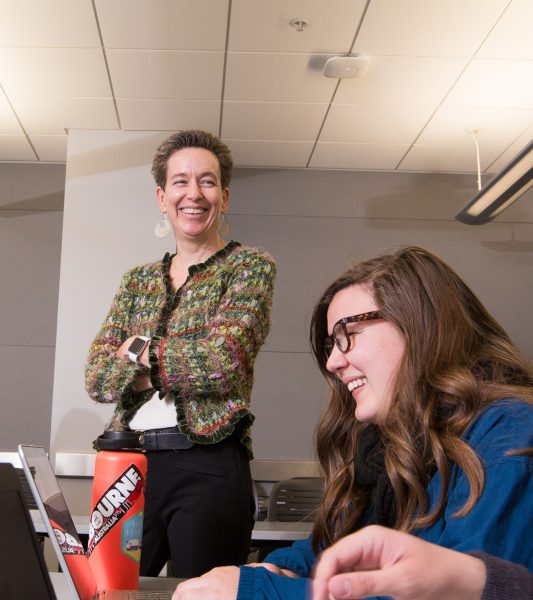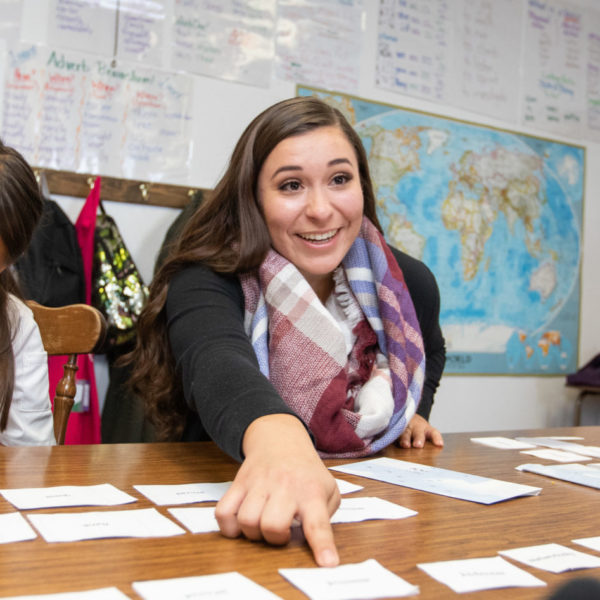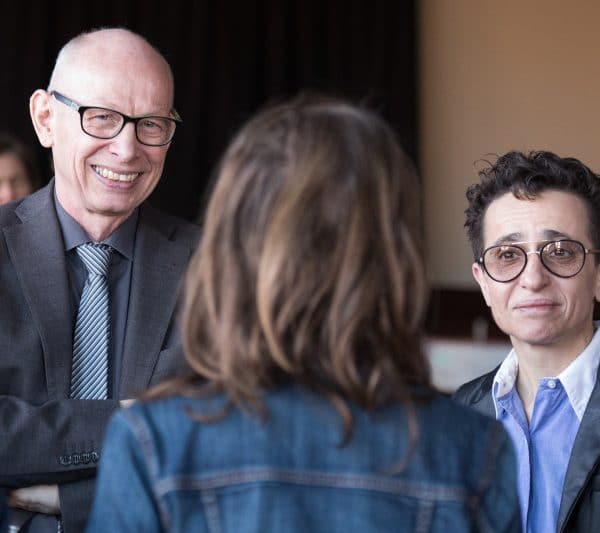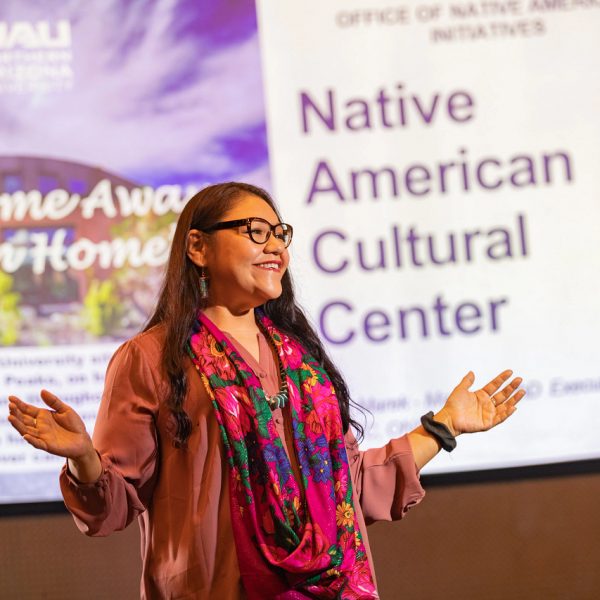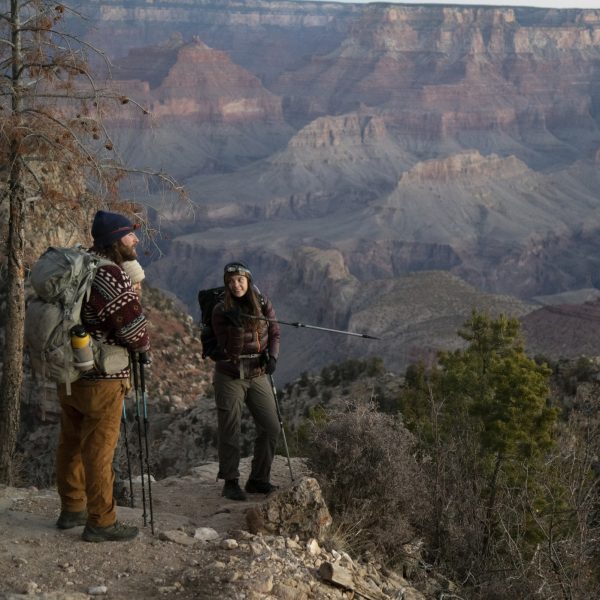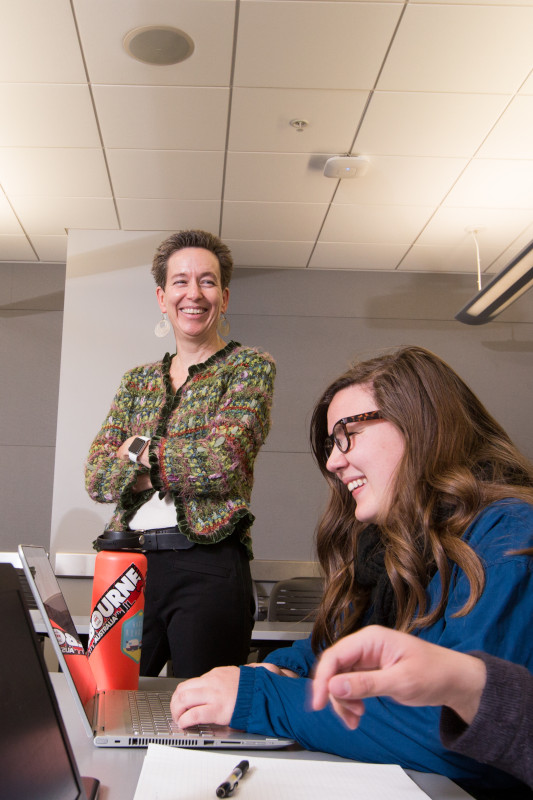
Politics lecturer Gretchen Gee develops critical thinkers.
Students in Gretchen Gee’s courses dive deep into political ideologies. The Associate Chair and Principal Lecturer of NAU’s Politics and International Affairs Department sets up expectations at the start of each semester, requiring students to present influential belief systems.
They share controversial and even hate-filled ideas such as Nazism or fascism as though they were trying to convert their classmates.
Gee challenges them: “I don’t care if you hate it. You’re going to get in there and embrace it and tell me why somebody would follow it. You’re going to put on the hat of a true believer.”
The analysis that follows leads to learning. “Then you’re going to take off that hat,” Gee said, “And step to the side and say what’s problematic about it and how it has impacted the world. You’re free to disagree, but you’re going to disagree respectfully.”
Gee’s goal as an instructor is simple: get students to see the world through a broader lens, regardless of their background.
“By forcing them to put on the perspective of somebody who has a very different belief system,” she said, she ensures students will engage with that system, adding that if they have to verbalize those beliefs, “that makes the engagement with it that much deeper. I don’t want anybody walking out of my class still blind to all those other perspectives out there.”
Engaging students
Engagement. Gee, a President’s Distinguished Teaching Fellow, takes this word seriously. When students are actively involved in learning, they more seriously examine their own beliefs. What Gee does not want is to spoon-feed students her views.
“I am thrilled when students at the end of the semester can’t tell what my political perspective is,” she said. “It is not my job to convert them to my perspective. My job is to help them become clear and critical thinkers.”
As Model United Nations club advisor, Gee built the program from four students when she took over in 2011 to around 50 per semester, traveling to conferences in the United States and abroad, often returning with awards against top universities.
She spent past spring breaks taking students on a study abroad program to World Model UN conferences in Panama, Madrid, Brussels, and Melbourne. In 2019, she was the coach for NAU’s squad in the Regents’ Cup, a free speech and debate competition put on by the Arizona Board of Regents to highlight civil discourse at the state’s three public universities.
Gee finds that the club setting inspires some students. Out of the classroom, they find purpose among their peers.
“I can’t tell you how many students tell me Model UN was the best part of their college experience,” she said. “What I love about Model UN is that I have everything from the tippy-top students to the students barely scraping by. They all talk about how important Model UN is to them because it’s a place where they connect with other students. They are engaged with something bigger than themselves.”
Gee has found that the Model UN is an opportunity to influence her teaching. She adapted simulations from club activities, such as a fake CNN clip about a terrorist attack. Students researched and took on various roles, from Islamist terrorists and Russian politicians to human rights workers and civilians.
People grow when they’re pushed, so I push them.
“They all come to class and act like it just happened,” Gee said. “They get into their groups and talk about why this happened and what should be done next. A representative from each group provides the explanation from their discussion. It’s active learning. It’s critical thinking. It’s engaged.”
Challenging students
Tasauna (LaShae) Brown, a Gold Axe winner who served as president of Model UN, credits Gee for being a mentor who prompted her to find opportunities to get involved.
“She’s been encouraging me to take leadership roles and has been propelling me forward ever since my first day on campus,” Brown said. “She really cares about her students and is dedicated to her work. She’s also very compassionate, which makes it easy to communicate with her.”
“My reputation is that I am a hard professor,” Gee said. “I totally revel in that. I tell my students straight up, I’m hard not to be mean, but because I want to challenge you. This is higher education. It ought to be challenging. The brain is like any muscle. It’s not going to get any stronger unless you push it. Our brains aren’t going to get better unless we really push it. People grow when they’re pushed, so I push them.”

